Vietnam and Russia have issued a joint statement on deepening the Comprehensive Strategic Partnership, based on the achievements of 30 years of implementing the Treaty on the Fundamental Principles of Bilateral Friendship Relations.
President To Lam and Russian President Vladimir Putin met on June 20 - Photo: NAM TRAN
On the occasion of Russian President Vladimir Putin's visit to Vietnam on June 20, the two sides issued a joint statement:
"At the invitation of General Secretary of the Central Committee of the Communist Party of Vietnam Nguyen Phu Trong, President of the Russian Federation Vladimir Putin paid a State visit to the Socialist Republic of Vietnam from June 19 to 20. The visit took place in the context of the two countries celebrating the 30th anniversary of the signing of the Treaty on the Fundamental Principles of Friendly Relations between the Socialist Republic of Vietnam and the Russian Federation (June 16, 1994).
In Hanoi, Russian President Vladimir Putin held talks with General Secretary of the Central Committee of the Communist Party of Vietnam Nguyen Phu Trong and President To Lam, and met with Prime Minister Pham Minh Chinh and National Assembly Chairman Tran Thanh Man. President Vladimir Putin also laid flowers at the Monument to Heroes and Martyrs and the Ho Chi Minh Mausoleum. President To Lam and President Vladimir Putin met with Vietnamese alumni who graduated from universities in the Soviet Union and Russia.
In a warm and friendly atmosphere, the two sides had in-depth discussions on many contents and directions to promote Vietnam - Russia relations in the fields of politics, economics - trade, science - technology and humanity. The two sides also discussed many international and regional issues of mutual concern in a spirit of trust.
General Secretary Nguyen Phu Trong and President Vladimir Putin reviewed the multifaceted cooperation between the Socialist Republic of Vietnam and the Russian Federation since the signing of the Treaty on the Basic Principles of Vietnam-Russia Friendship Relations on June 16, 1994 and the establishment of the Comprehensive Strategic Partnership between the two countries in 2012.
The Vietnamese side welcomed the results of the Russian presidential election in March 2024, acknowledging the transparency and objectivity of the election, saying that the re-election of President Vladimir Putin demonstrates the strong support of the Russian people for the policy of the Russian Federation, with one of the foreign policy priorities being to develop cooperation with the Socialist Republic of Vietnam.
Vietnam strongly condemned the brutal terrorist attack on March 22, 2024 in Moscow, declared that it does not accept attacks on civilians and supports Russia in the fight against terrorism and extremism, as well as in ensuring peace and stability in the country.
The Russian side highly appreciated the great achievements that the Socialist Republic of Vietnam has attained under the correct leadership of the Communist Party of Vietnam, headed by General Secretary Nguyen Phu Trong, contributing to increasingly enhancing the prestige and position of the Communist Party of Vietnam and the State of Vietnam in the international arena, as well as believing that Vietnam will successfully achieve the strategic goals of national development.
President Vladimir Putin also congratulated President To Lam on his election as President of the Socialist Republic of Vietnam and invited senior Vietnamese leaders to attend the ceremony to celebrate the 80th anniversary of the Victory in the Great Patriotic War (May 9, 2025).
Based on the results of the visit, the Socialist Republic of Vietnam and the Russian Federation declared as follows:
1. The Socialist Republic of Vietnam and the Russian Federation have continuously strengthened their Comprehensive Strategic Partnership in the spirit of friendship and mutual support in a complex international context. In 2025, the two countries will celebrate the 75th anniversary of the establishment of diplomatic relations, marking a long journey together overcoming challenges and difficulties, including the years when the Vietnamese people fought for independence and freedom.
The bilateral relationship has stood firm against fluctuations, contributing to strengthening peace, stability and security in the Asia-Pacific region and the world. With the joint efforts of both sides, the multifaceted cooperation between Vietnam and Russia continues to develop positively in line with the interests of the two countries, is a priceless asset of the two peoples and a model of traditional friendship and mutually beneficial cooperation.
After 30 years of implementing the Treaty on the basic principles of friendly relations and after establishing the Comprehensive Strategic Partnership in 2012, the two sides have achieved the following important achievements:
- Political dialogue between Vietnam and Russia has a high level of trust and understanding. Exchanges and contacts at all levels are maintained regularly, creating a solid foundation for further strengthening and expanding bilateral relations. The two sides maintain close or similar views on many international and regional issues, and coordinate effectively within the framework of multilateral organizations.
- Vietnam and Russia continue to further promote economic and trade cooperation, including on the basis of the Free Trade Agreement between the Socialist Republic of Vietnam and the member states of the Eurasian Economic Union signed on May 29, 2015.
- The two sides continue to strengthen cooperation in the fields of oil and gas, energy, industry, digital technology, transportation and agriculture, and promote the great potential for cooperation in the fields of science, technology, education and humanities. The two sides increasingly focus on strengthening local cooperation, contact through party and social organization channels, improving the effectiveness of existing cooperation mechanisms, and establishing new cooperation mechanisms and frameworks when necessary.
2. In order to promote the achievements after 30 years of implementing the Treaty on the basic principles of friendly relations, preserve the fine tradition of friendship, as well as take advantage of the potential for cooperation, the two sides affirm their desire to deepen the Comprehensive Strategic Partnership on the basis of the following principles and orientations:
- Strengthening and improving the effectiveness of the Comprehensive Strategic Partnership is one of the foreign policy priorities of Vietnam and Russia, meeting long-term interests, contributing to the development of each country, as well as enhancing the role of the two countries in each region and in the world.
- Vietnam and Russia build relations on the basis of mutual trust, the principles of sovereign equality between states, territorial integrity, equal rights and self-determination of peoples, non-interference in each other's internal affairs, non-use or threat of use of force, peaceful settlement of disputes, as well as on the basis of compliance with the United Nations Charter and international law, determined to continue close cooperation in all fields within both bilateral and multilateral frameworks.
- Vietnam and Russia do not ally or enter into agreements with third parties to take actions that harm each other's independence, sovereignty, territorial integrity, and fundamental interests. The development of Vietnam-Russia relations is not aimed at opposing any other third party.
3. Vietnam and Russia agreed to continue implementing the following cooperation contents:
- Continue to strengthen regular and substantive political dialogue at the senior and highest levels, strive to effectively implement the agreements reached between the leaders of the two countries. Improve the effectiveness of existing cooperation mechanisms and establish new cooperation mechanisms, promptly coordinate to resolve issues in bilateral cooperation.
- Promote contacts through party channels and between leaders of legislative bodies, the Inter-Parliamentary Cooperation Committee between the National Assembly of the Socialist Republic of Vietnam and the State Duma of the Federal Assembly of the Russian Federation, between committees and friendship parliamentary groups of the two countries' National Assemblies; continue to coordinate actions at international and regional inter-parliamentary forums.
- Emphasize that defense and security cooperation plays a special role in the overall Vietnam-Russia relationship, is not aimed against any third party, has high reliability and is completely consistent with the principles and regulations of international law, contributing to ensuring peace, stability and development in the Asia-Pacific region and the world in general.
- Agree to strengthen comprehensive cooperation in the field of international information security in accordance with international law and bilateral agreements and conventions to prevent the use of information and communication technology for the purpose of violating sovereignty, violating territorial integrity, as well as other acts in global cyberspace that aim to hinder international peace, security and stability. Continue to improve the bilateral legal basis for judicial assistance cooperation related to criminal offenses using information and communication technology.
- Continue to strengthen cooperation in responding to emergencies to prevent and minimize damage, support victims, and conduct joint exercises and training between rescue agencies of the two countries.
- Focus on further developing economic cooperation. Facilitate the expansion of trade, investment and financial-credit relations in accordance with international law and the legal regulations of the two countries to promote balanced exchange of goods, effectively exploiting the advantages of the Free Trade Agreement between Vietnam and member countries of the Eurasian Economic Union.
- Affirm the important coordinating role of the Vietnam - Russia Intergovernmental Committee on economic - trade and scientific - technological cooperation, together with subcommittees and working groups in developing and implementing joint cooperation projects and programs. Support the early agreement and implementation of the Vietnam - Russia Cooperation Development Master Plan until 2030, including through cooperation roadmaps in various fields.
- Affirmed the need to increase Vietnam's investment in Russia and Russia's investment in Vietnam, including in the fields of mineral exploitation and processing, industry, agriculture, machine building and energy. On that basis, agreed to promote the activities of the Vietnam - Russia High-Level Working Group on priority investment projects.
- Affirming continued cooperation within the framework of existing and new oil and gas projects in accordance with the laws of each country, including the supply and processing of crude oil and liquefied gas for Vietnam, meeting the strategic interests of both sides. Assessing cooperation in building new and modernizing existing power facilities as a promising direction for cooperation.
- Support and facilitate the expansion of operations of Vietnamese oil and gas enterprises in the Russian Federation and Russian oil and gas enterprises on the continental shelf of Vietnam, in accordance with Vietnamese and Russian laws, as well as international law, including the 1982 United Nations Convention on the Law of the Sea.
- Taking into account the potential for cooperation in the field of nuclear energy, determined to speed up the implementation of the project to build a Nuclear Science and Technology Research Center in Vietnam.
- It is necessary to strengthen cooperation in areas such as mining industry, transportation, shipbuilding and machinery manufacturing, and railway modernization.
- Affirm the importance of expanding cooperation in the fields of agriculture, fisheries and forestry, including increasing the import and export of agricultural products, as well as encouraging businesses to participate in establishing agricultural production facilities in Vietnam and Russia.
- Support the strategic nature of cooperation in education - training, science - technology and innovation. In that spirit, welcome the signing of the Agreement on cooperation in the field of higher education within the framework of this visit.
- Support the promotion of research and teaching of Vietnamese in Russia and Russian in Vietnam, including making full use of the potential of educational institutions of the two countries, including the Pushkin Russian Language Institute in Hanoi and the Russian Center for Science and Culture in Hanoi.
- Assign relevant ministries and branches to study Russia's initiative on universal teaching in Russian in Hanoi.
- Support the expansion of the Vietnam - Russia Technical University Network to provide undergraduate training, organize career guidance activities in Vietnam to promote the above Network.
- Support the operation and promote the potential of the Vietnam - Russia Tropical Science and Technology Research Center to turn the Center into a model and symbol of bilateral cooperation. Ensure the research activities of Vietnamese and Russian experts at the Center are at the regional and international level. Russia will transfer the scientific research ship "Professor Gagarinsky" to Vietnam. Continue to consider technology transfer within the framework of the Center's activities.
- Welcome the promotion of cooperation in the humanities, including expanding exchanges between ministries, sectors and localities, regularly holding Cultural Days of the two countries on the basis of reciprocity, maintaining contact between mass media agencies, archives, friendship associations and other social organizations.
- Support the expansion of cooperation to promote the positive agenda of the Vietnam - Russia Comprehensive Strategic Partnership in global cyberspace, continue to facilitate cooperation in the field of journalism, and strengthen coordination to prevent disinformation and unfriendly information campaigns by third parties.
- Continue to promote multi-faceted cooperation in the health sector, including technology transfer and training of high-quality health workers.
- Affirmed the desire to further strengthen exchanges in the field of physical education and sports. Vietnam highly appreciated Russia's hosting of the first-ever International Sports Competition "Future Olympics" in Kazan and supported the Russian Federation's hosting of the BRICS Games in a non-discriminatory spirit, in line with the general principles of the Olympic movement.
- Note with satisfaction the steady growth of Russian tourists to Vietnam and support further expansion of tourism cooperation, including increasing the number of regular direct flights and charter flights between the two countries, as well as simplifying travel procedures for citizens of the two countries.
- Continue to discuss immigration issues, facilitating the living, working and studying of Vietnamese citizens in Russia and Russian citizens in Vietnam.
- Affirming the importance of solemnly celebrating important events in the history of the two countries and the Vietnam - Russia relationship in 2025, including the 75th anniversary of the establishment of Vietnam - Russia diplomatic relations (January 30, 1950), the 50th anniversary of the Liberation of the South and National Reunification (April 30, 1975), the 80th anniversary of the Victory in the Great Patriotic War (May 9, 1945), and the 80th anniversary of Vietnam's National Day (September 2, 1945).
4. Promote the objective process of forming a fair and sustainable multipolar world order, based on the fundamental principles of the United Nations Charter and international law, including respect for sovereignty, territorial integrity, the right to self-determination of peoples, non-interference in the internal affairs of countries, non-use of force or threat of force, and peaceful settlement of disputes.
- Acknowledging the rapid changes in the global political and economic landscape, strengthening the position and potential of Southern countries. Welcoming the increasing role of these countries in international governance.
- Believing that every country has the right to self-determine its development model, political, economic and social institutions in accordance with its national conditions and the aspirations of its people. The two sides do not support interference in the internal affairs of other countries, the imposition of unilateral sanctions, the application of extraterritorial rule of law, and ideological divisions without an international legal basis and without going through the United Nations Security Council.
- Consistently affirm the results of World War II, as stated in the Charter of the United Nations, as well as oppose all attempts to deny, falsify and distort the history of World War II. The two sides affirm the importance of correct historical education, preserving the memory of the struggle against fascism, and resolutely condemning acts of glorifying and attempting to revive fascism and militarism.
- Continue to strengthen cooperation within the United Nations, including at the United Nations General Assembly, and do not support the politicization of the activities of specialized agencies of the United Nations and other international organizations. Support the central coordinating role of the United Nations in ensuring peace, security and sustainable development, and support the improvement of operational efficiency, as well as the democratization and reform of the United Nations.
The two sides have close or similar views on many regional and global issues, continue to cooperate closely at the United Nations and other multilateral international organizations, and support each other's candidacy for international organizations and relevant executive bodies.
- Committed to promoting an open, inclusive, transparent and non-discriminatory multilateral trading system, based on the rules of the World Trade Organization (WTO). Expressed concerns about the politicization of international economic relations and the fragmentation of global trade, increasing protectionism and unfair competition.
- Affirming readiness to promote the international community's joint efforts to respond to traditional and non-traditional security challenges, including terrorism, transnational crime, armed conflicts, illegal drug production and trafficking, territorial disputes, subversion, climate change, natural disasters, and epidemics. Efforts to ensure information security, food security, as well as effectively implement the 2030 Agenda for Sustainable Development.
- Continue to develop cooperation in the field of combating international terrorism and the financing of international terrorism, taking into account the central coordinating role of the United Nations on the basis of strict compliance with the provisions and principles of international law, as well as promoting the strengthening of the leading role of countries and competent authorities in this field.
- Support international efforts on arms control, disarmament and non-proliferation, including promoting the review process of the Treaty on the Non-Proliferation of Nuclear Weapons of 1 July 1968, as well as within the framework of the Comprehensive Nuclear-Test-Ban Treaty. Support consultations between the five nuclear powers and member states of the Treaty on the Southeast Asia Nuclear-Weapon-Free Zone to resolve difficulties and move towards signing the Protocol to the Treaty.
- Support compliance with and strengthening of the Convention on the Prohibition of the Development, Production and Stockpiling of Bacteriological (Biological) and Toxin Weapons and on their Destruction of 16 December 1971, including institutionalizing the implementation of the Convention and avoiding duplication of functions among relevant international bodies.
- Affirmed the need to initiate multilateral negotiations on the International Convention on Combating Biological and Chemical Terrorism at the Conference on Disarmament to respond to the threat of biological and chemical terrorism.
- Persistently pursuing the goal of building a world free of chemical weapons, concerned about the politicization of the activities of the Organization for the Prohibition of Chemical Weapons. Affirming the importance of fully implementing the Convention on the Prohibition of the Development, Production, Stockpiling and Use of Chemical Weapons and on their Destruction of January 13, 1993, which is an important tool in the field of disarmament and non-proliferation.
- Expressed concern about the risk of an arms race in outer space, stressed the need to adhere to the use of outer space for peaceful purposes only, supported the acceleration of negotiations on the Treaty on the Prevention of the Deployment of Weapons in Outer Space and the Use or Threat of the Use of Force in Outer Space, as well as supported the promotion of initiatives and commitments on non-preemptive deployment of weapons in outer space.
- Promote cooperation in ensuring information and communications technology security, be ready to cooperate in responding to risks in cyberspace, including those related to artificial intelligence in information and communications technology, and support the establishment of a multilateral, democratic and transparent global cyberspace governance framework on the basis of ensuring information security and safety for national Internet networks.
- Recognizing the key role of the United Nations in discussing international information security issues. Considering the need to establish an international legal regime for the management of cyberspace. The Parties support the early adoption by the United Nations of a comprehensive convention on the prevention of the use of information and communications technologies for criminal purposes and further strengthening cooperation in this field.
- Continue to respond to climate change, affirming commitment to the objectives, principles and main contents of the United Nations Framework Convention on Climate Change dated May 9, 1992 and the Paris Agreement dated December 12, 2015. Emphasize the importance of increasing technology transfer and financial support to implement the above efforts.
- Convinced that, in accordance with the fundamental principle of international law of equality of States, it is necessary to respect international obligations relating to state immunity and state property immunity.
- Continue to cooperate in protecting and promoting human rights on the basis of equality and mutual respect, in accordance with the United Nations Charter, the provisions of international law and the national laws of Vietnam and Russia. Closely coordinate to combat the trend of politicizing human rights and using human rights issues to interfere in the internal affairs of each country.
- Considers it necessary to further strengthen UNESCO's potential as a global intergovernmental humanitarian forum, promoting the maintenance of professional dialogue in this forum to reach consensus among Member States and promote a unified agenda.
- Russia highly appreciates Vietnam's balanced and objective stance on the Ukraine issue, according to which it is necessary to resolve disputes and disagreements by peaceful means in accordance with international law and the principles of the United Nations Charter, taking into account the legitimate interests of the parties concerned, for peace, stability and development in the region and the world; welcomes Vietnam's readiness to participate in international efforts with the participation of relevant parties to seek a peaceful and sustainable solution to the Ukraine issue.
- The Russian side welcomes Vietnam to participate in the BRICS and Southern and Eastern Countries Foreign Ministers' Meeting from June 10 to 11, 2024 in Niger-Novo-Gorod. Continue to strengthen cooperation between BRICS countries and developing countries, including Vietnam.
- Believe that it is necessary to strengthen the region's joint efforts to build in the Asia-Pacific an equal, indivisible, comprehensive, open, transparent and inclusive security and cooperation structure based on international law, including the principles of non-use or threat of use of force, peaceful resolution of conflicts, and non-interference in each other's internal affairs.
The two sides oppose the division of the Asia-Pacific regional structure with ASEAN's central role, which negatively impacts the expansion and enhancement of the region's common dialogue.
- Affirming the universality and integrity of the 1982 United Nations Convention on the Law of the Sea, which is the legal foundation for all activities at sea and in the ocean and plays a key role in developing cooperation at the national, regional and international levels, emphasizing the need to maintain the integrity of the Convention.
- Coordinate in ensuring security, safety and freedom of navigation and overflight and unimpeded commercial activities, support self-restraint, non-use of force or threat to use force and settlement of disputes between parties concerned by peaceful means in accordance with the principles of the Charter of the United Nations and international law, including the 1982 United Nations Convention on the Law of the Sea, as well as in accordance with the standards and recommended practices of the International Civil Aviation Organization and the International Maritime Organization.
- Support the full and effective implementation of the 2002 Declaration on the Conduct of Parties in the East Sea (DOC) and welcome the negotiation process to soon reach an effective and substantive Code of Conduct in the East Sea (COC).
- Support the strengthening of the central role of the Association of Southeast Asian Nations (ASEAN) in the regional architecture in the Asia-Pacific region through upholding the values and principles of the Treaty of Amity and Cooperation in Southeast Asia, participating in ASEAN-led cooperation mechanisms such as the East Asia Summit, the ASEAN Regional Forum, and the ASEAN Defense Ministers' Meeting Plus.
- Promote cooperation within the framework of the ASEAN-Russia High Representatives for Security Consultation, enhance cooperation in the field of information security in ASEAN-Russia relations, as well as within the framework of the ASEAN-Russia Dialogue on Information and Communications Technology Security.
- Continue to strengthen and deepen the ASEAN-Russia Strategic Partnership, promote effective cooperation on the basis of the ASEAN-Russia Comprehensive Action Plan for the period 2021-2025 and resolve to draft a similar document for the next 5-year period.
- Strengthen regional economic connectivity and implement inter-regional connectivity initiatives, including the Greater Eurasian Partnership project, as well as explore the potential for economic cooperation between ASEAN and the Eurasian Economic Union. Continue to promote cooperation between ASEAN and the Eurasian Economic Union and the Shanghai Cooperation Organization.
- Continue cooperation within the framework of the Asia-Pacific Economic Cooperation Forum, regional inter-parliamentary mechanisms (ASEAN Inter-Parliamentary Forum, Asia-Pacific Parliamentary Forum, Asian Parliamentary Assembly) with the aim of enhancing the role of these mechanisms for peace, stability, development and prosperity in Asia. Strengthen cooperation with Mekong sub-region countries in various fields.
- Russia supports and commits to closely coordinate with Vietnam towards the successful organization of APEC Vietnam Year 2027.
- Sharing the desire to strengthen peace and stability in the Middle East, opposing interference in the internal affairs of regional countries, expressing commitment to a comprehensive, fair and lasting solution to the Palestinian issue on the basis of respect for relevant international law, with the main element being the two-state solution, thereby establishing an independent Palestinian State with East Jerusalem as its capital based on the pre-1967 borders, coexisting peacefully alongside the State of Israel.
The Socialist Republic of Vietnam and the Russian Federation believe that the effective implementation of the above cooperation directions and coordinated actions at international and regional forums and organizations will contribute to consolidating and enhancing the bilateral relationship, tightening the traditional friendship and comprehensive strategic partnership between the two countries, meeting the long-term interests of the people of the two countries, for peace, security and sustainable development in the Asia-Pacific region in particular and the world in general.
***
President Vladimir Putin thanked General Secretary of the Central Committee of the Communist Party of Vietnam Nguyen Phu Trong and the Vietnamese high-ranking leaders for their thoughtful and respectful reception, demonstrating the high trust, traditional friendship and special affection between the leaders and people of the two countries. President Vladimir Putin invited General Secretary Nguyen Phu Trong and the Vietnamese high-ranking leaders to visit Russia at an appropriate time. General Secretary Nguyen Phu Trong and the Vietnamese high-ranking leaders happily accepted the invitation."
Tuoitre.vn
Source: https://tuoitre.vn/toan-van-tuyen-bo-chung-viet-nam-nga-20240620200550561.htm

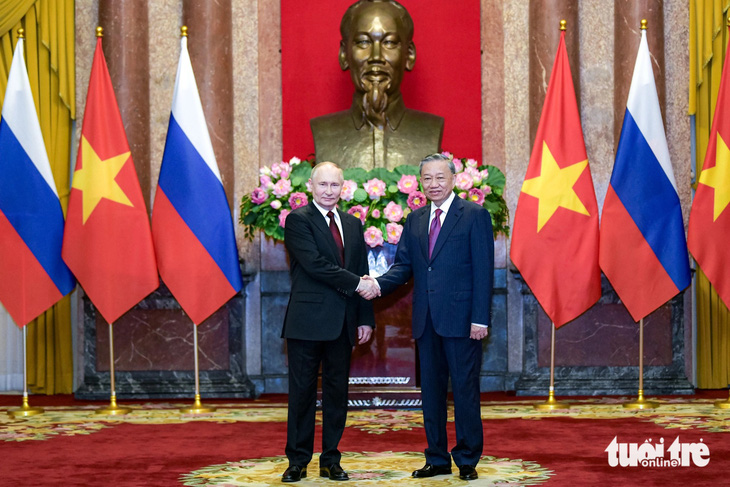


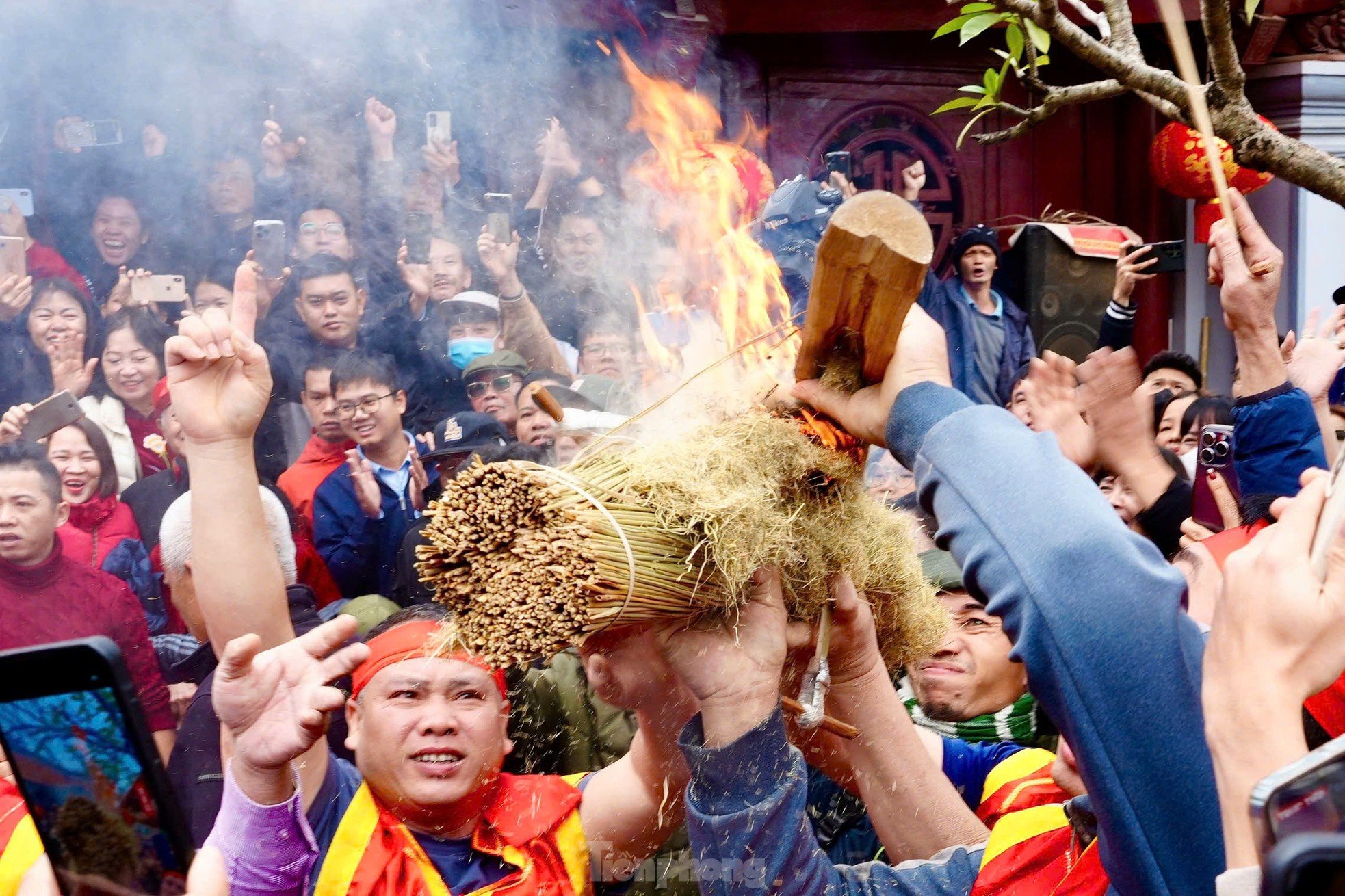

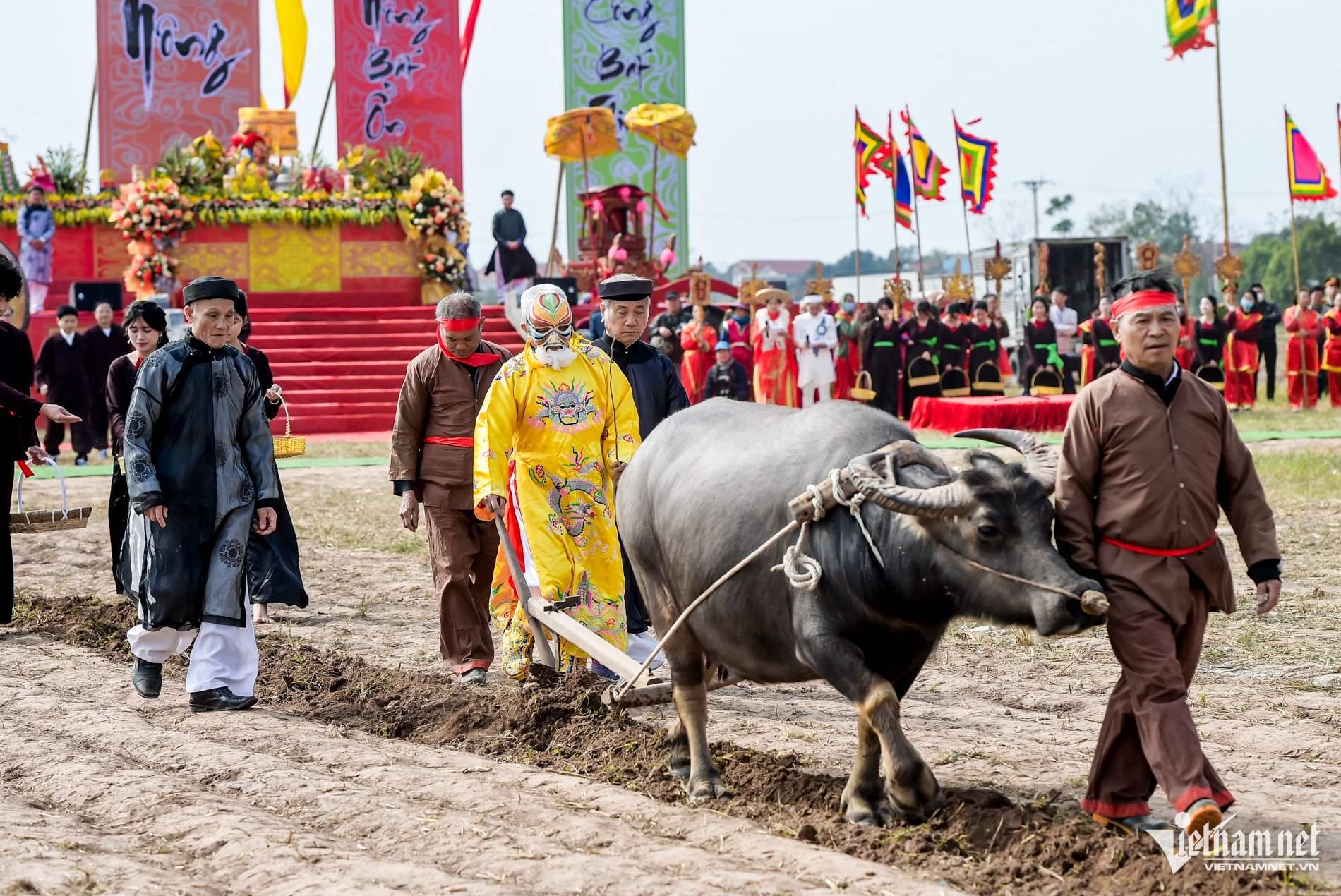



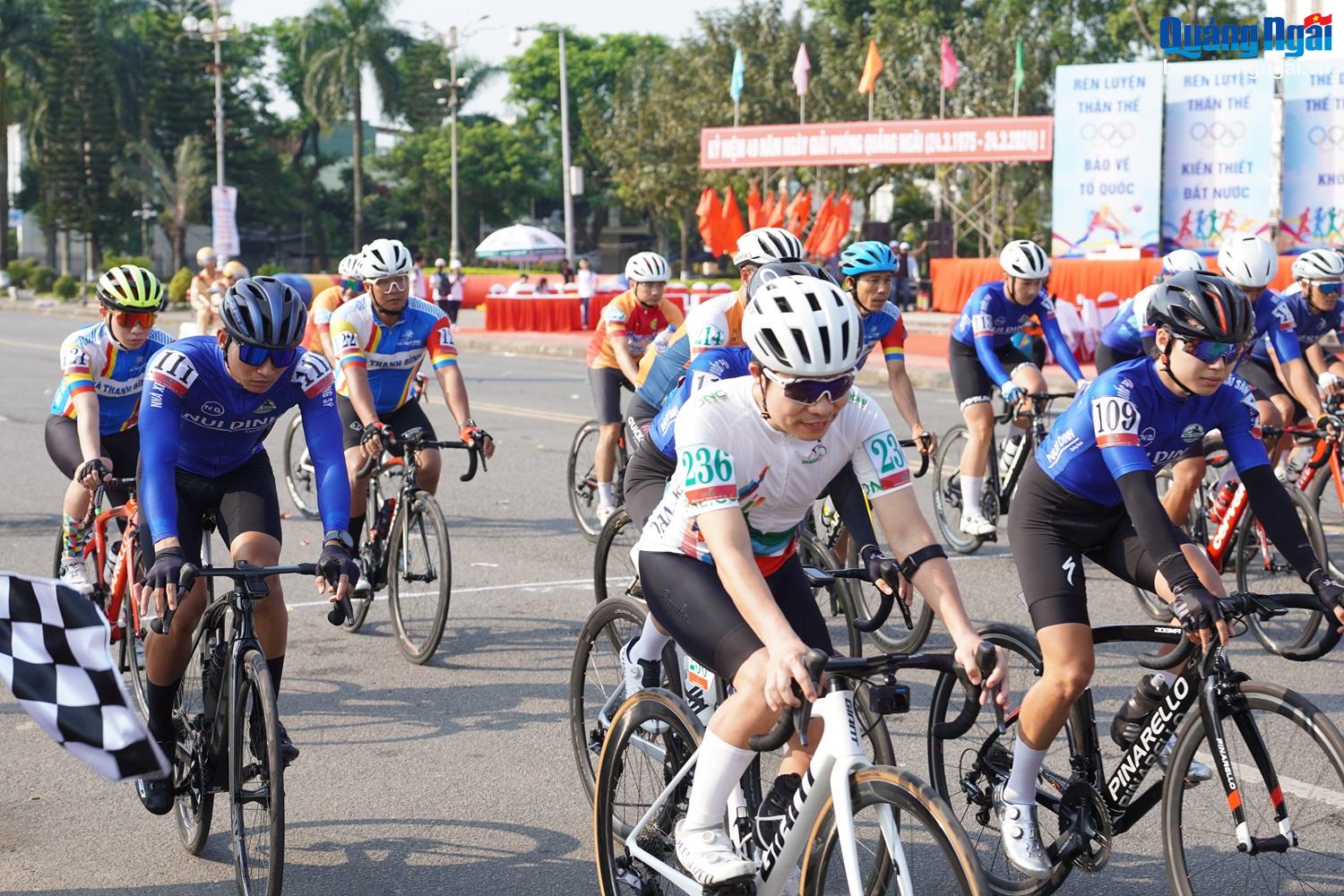
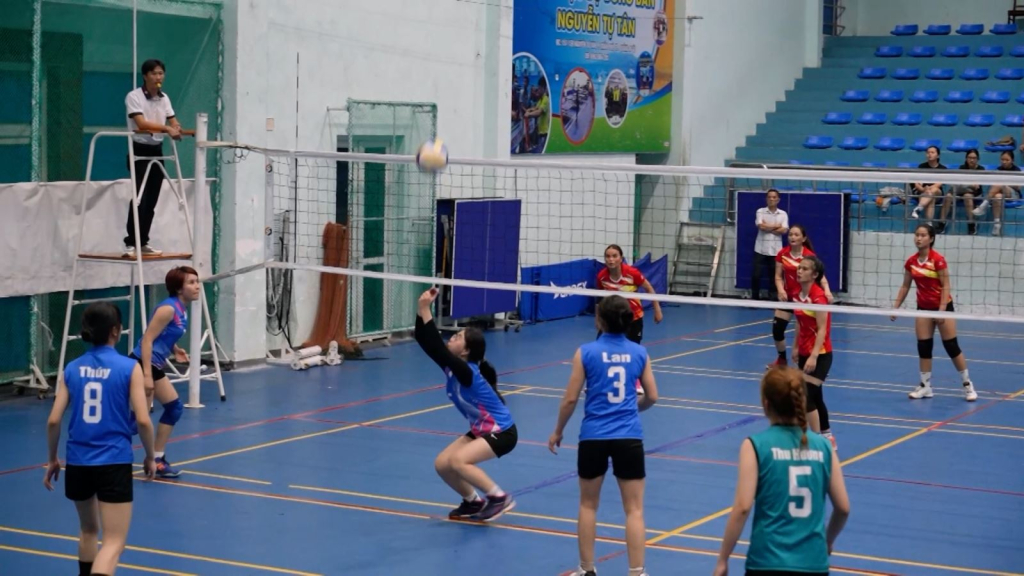
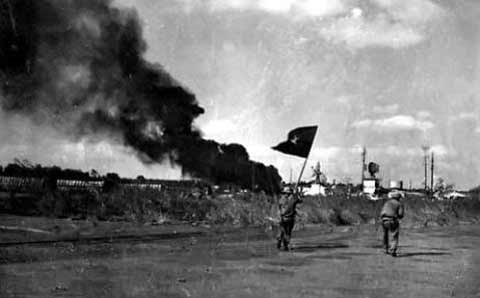



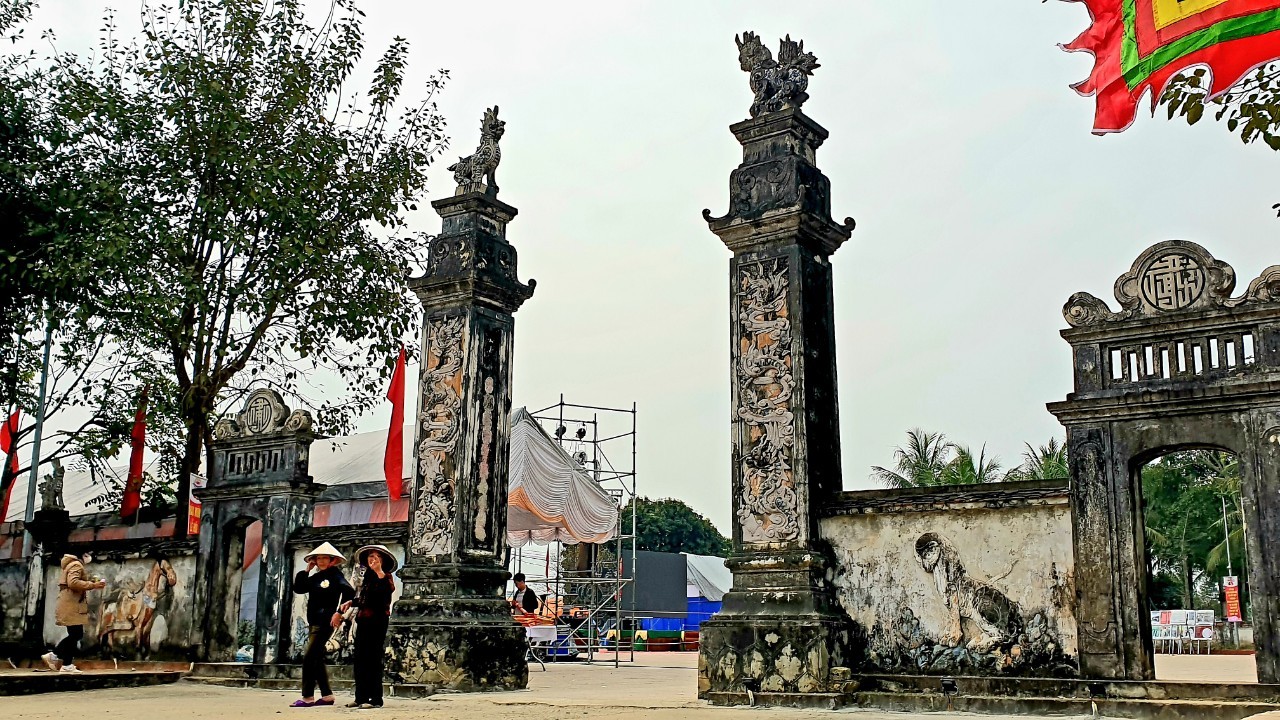



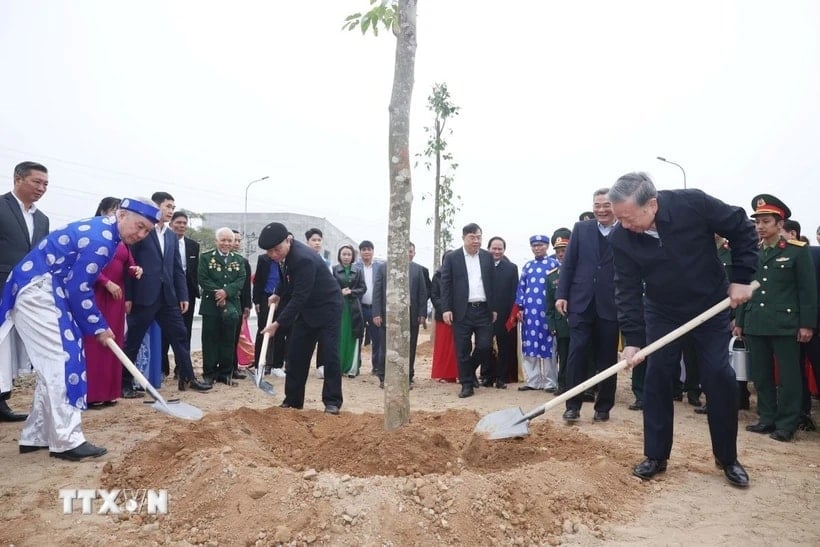

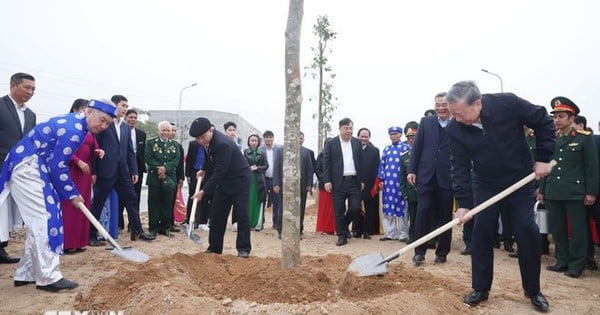

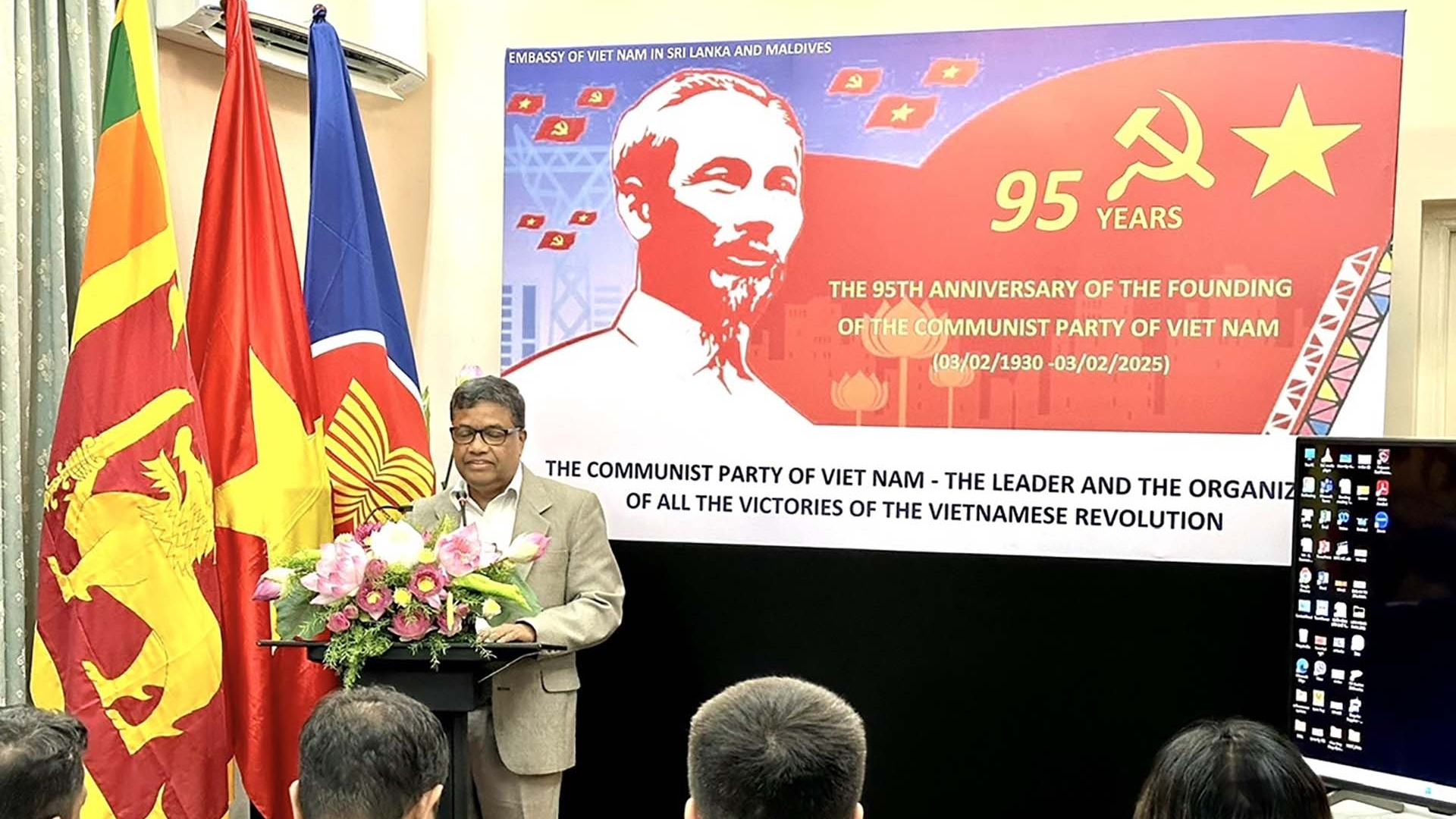

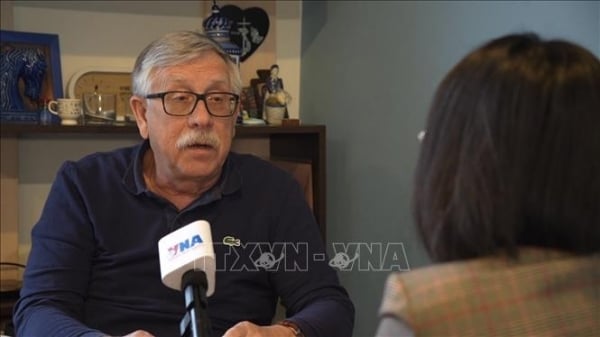
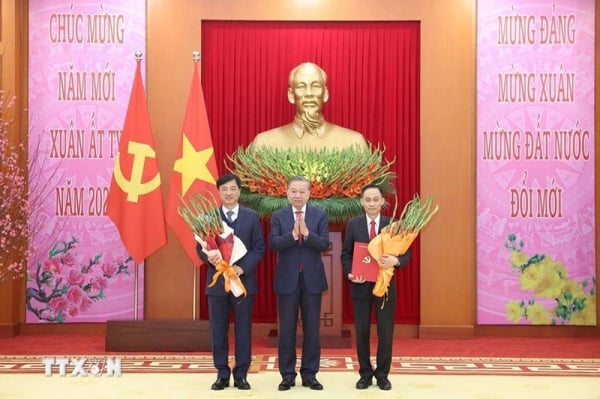
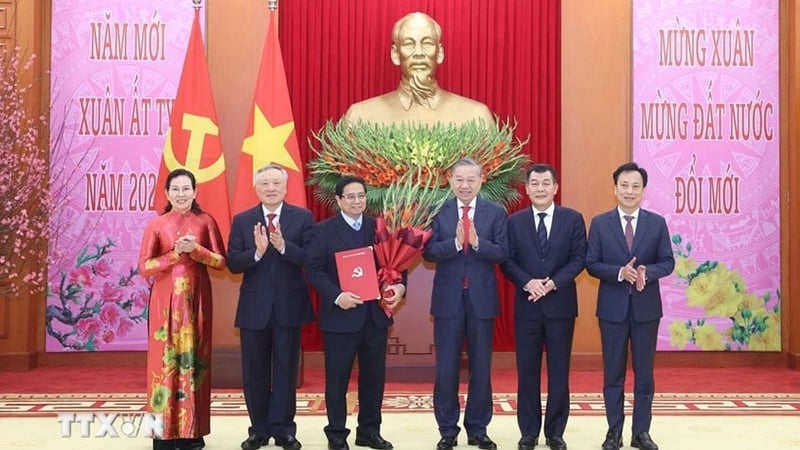
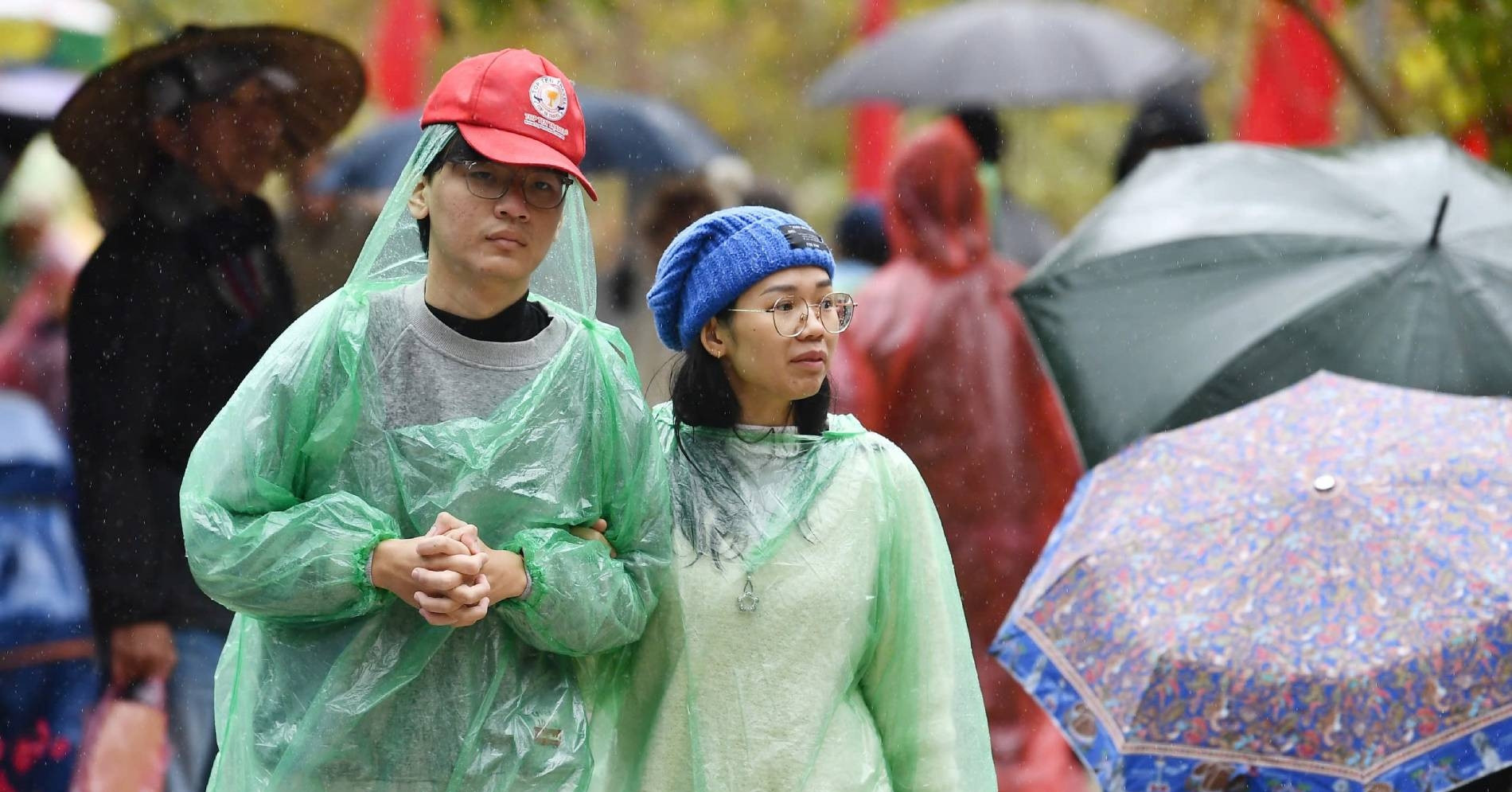

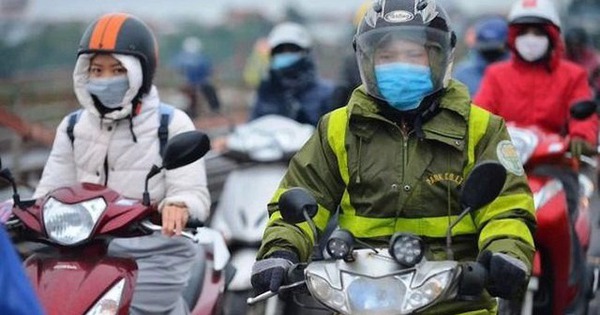
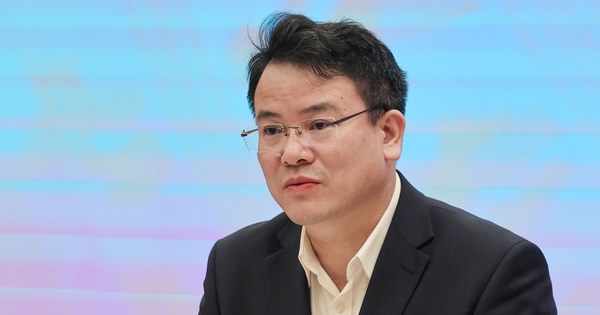

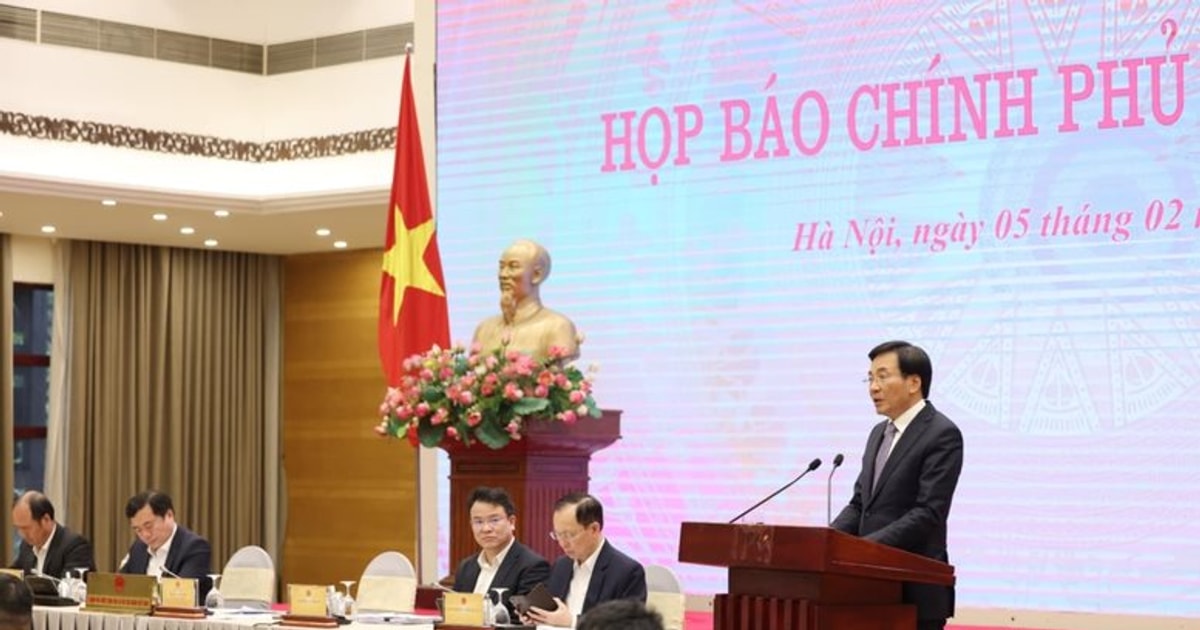

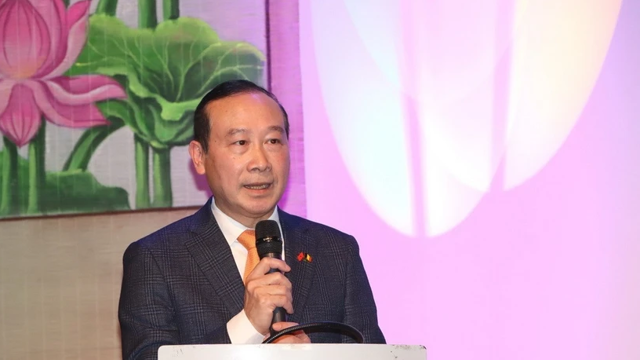

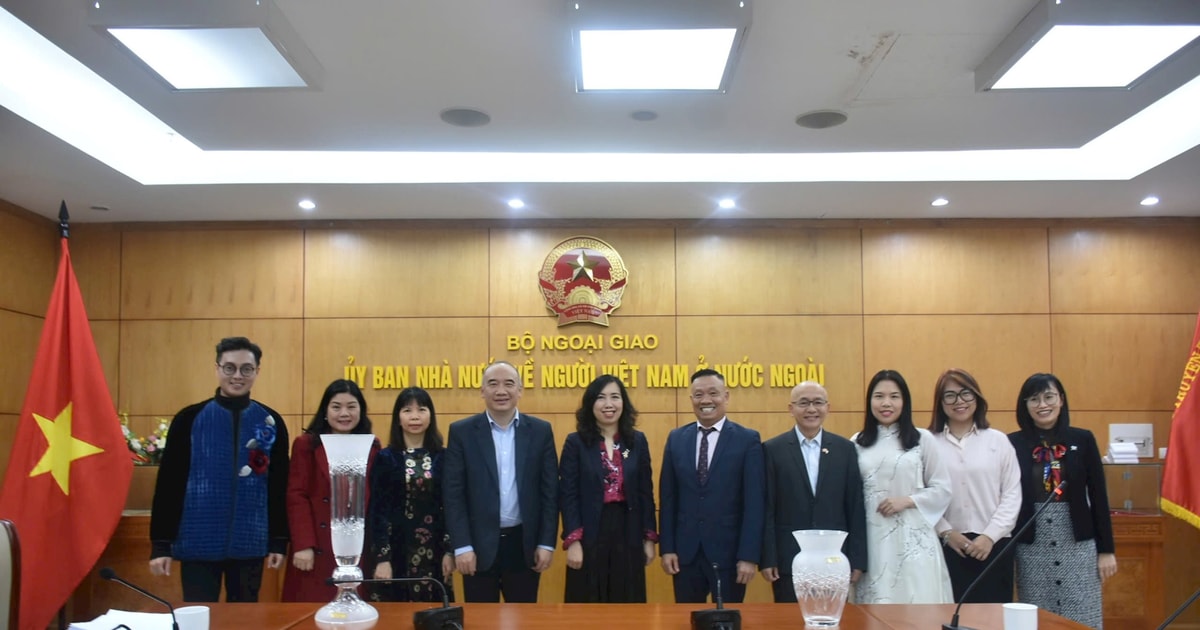

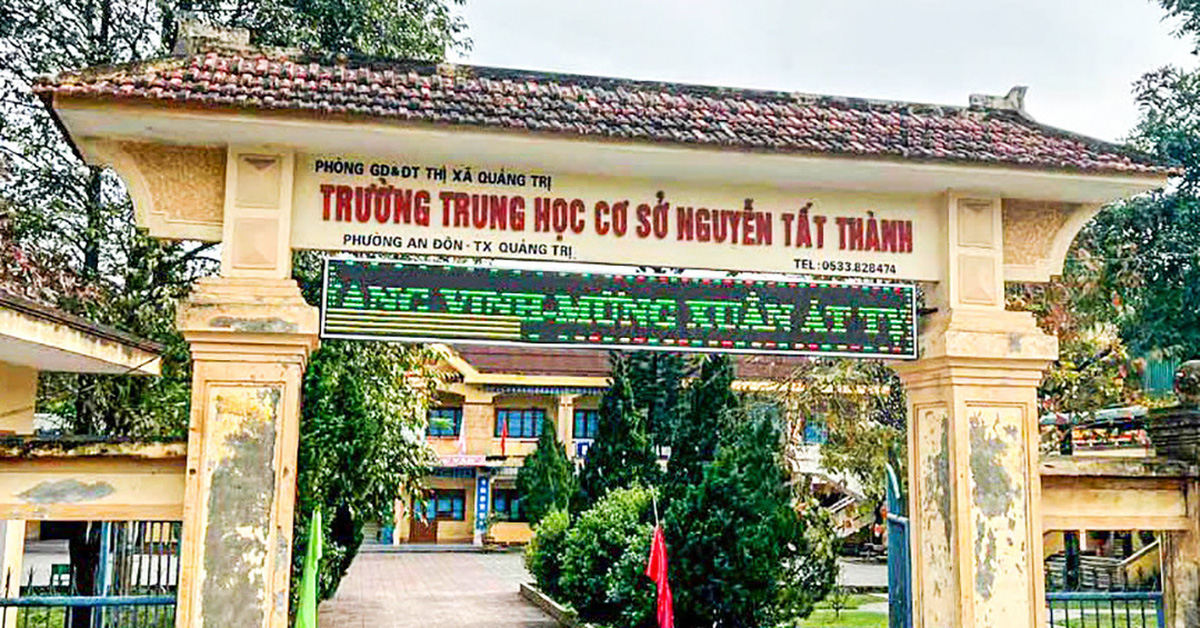
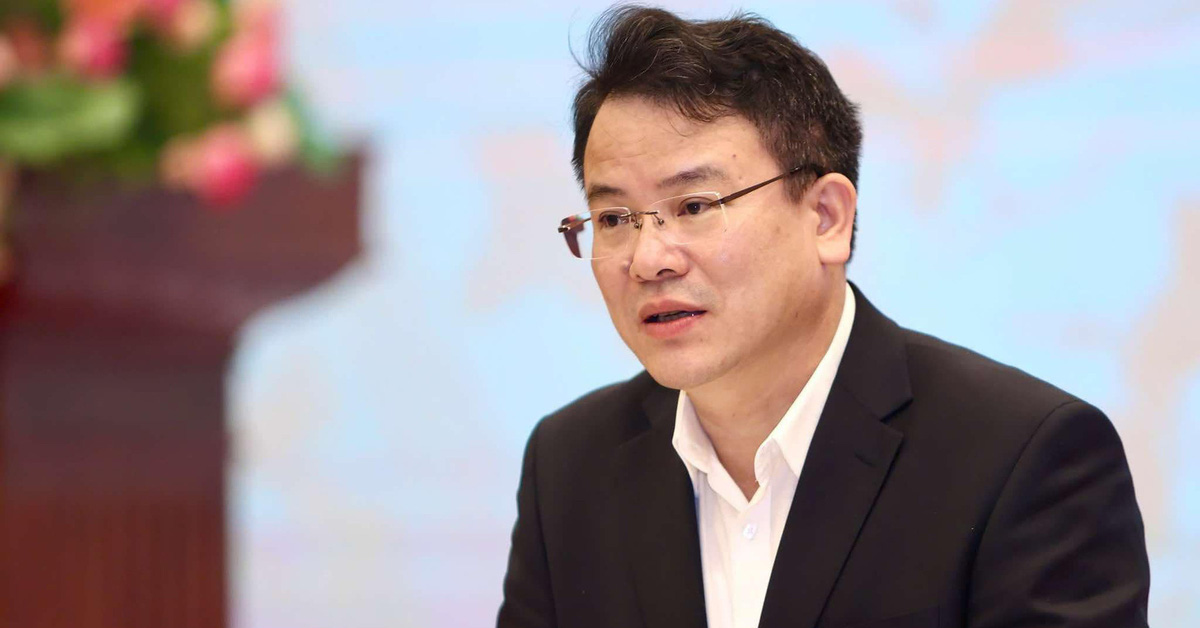
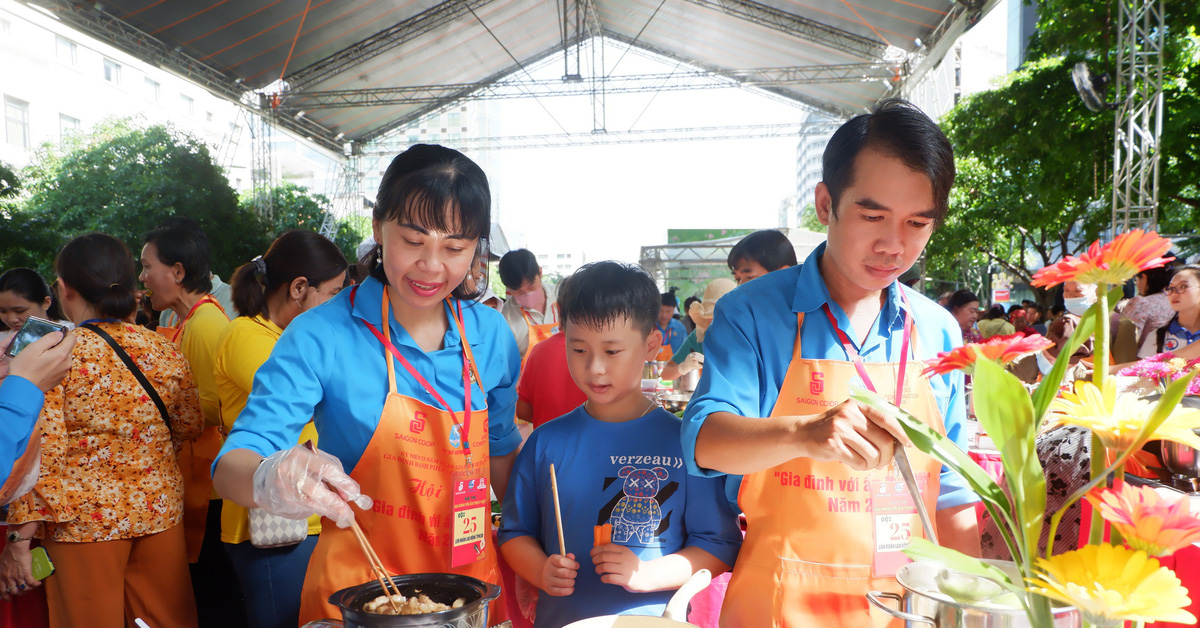
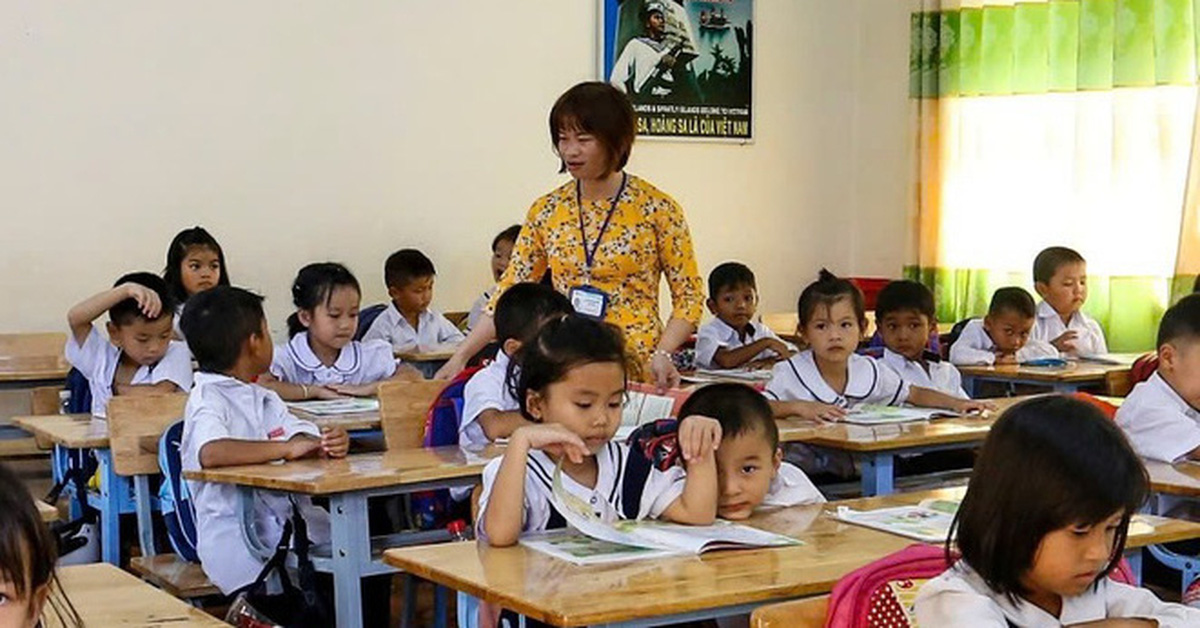

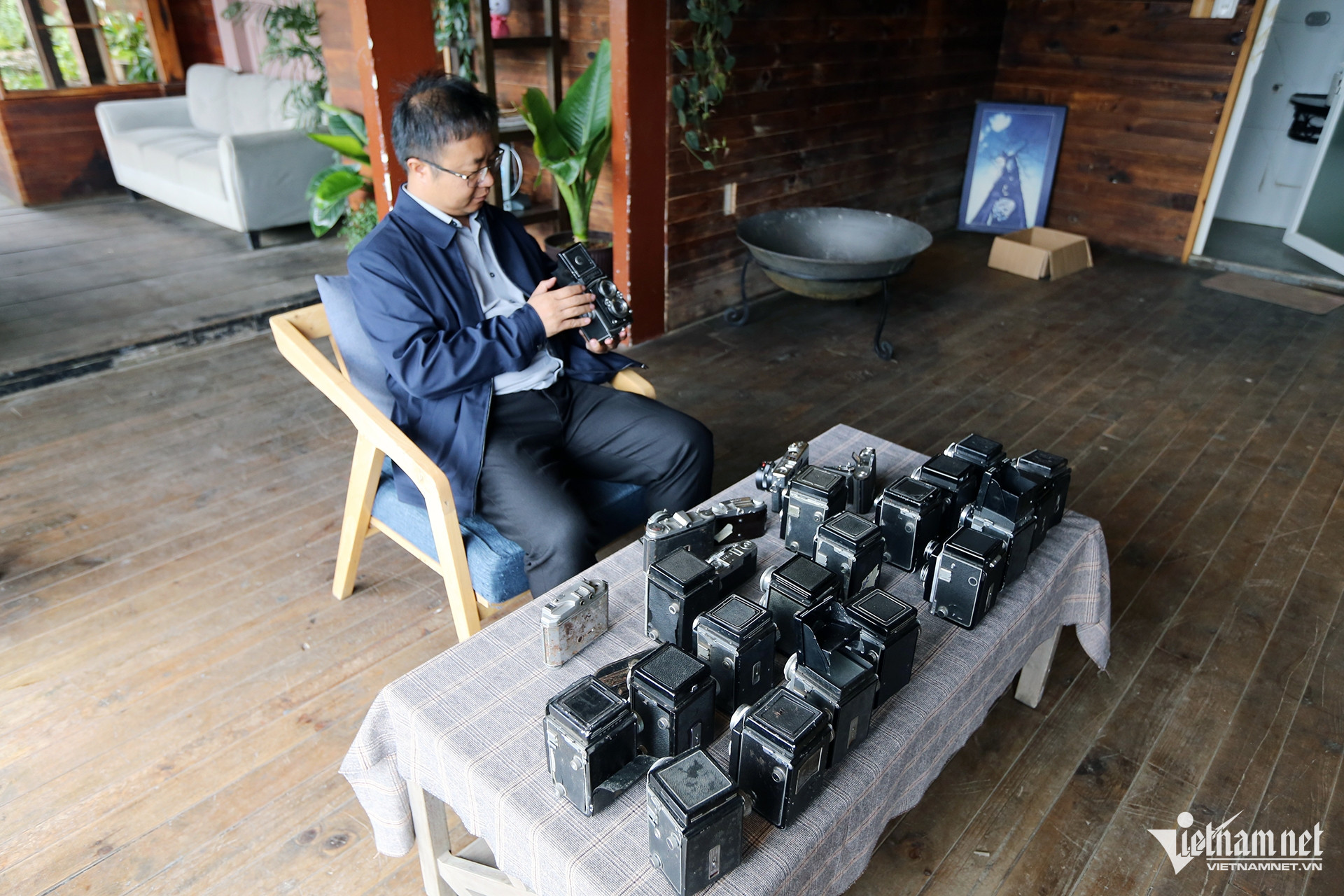





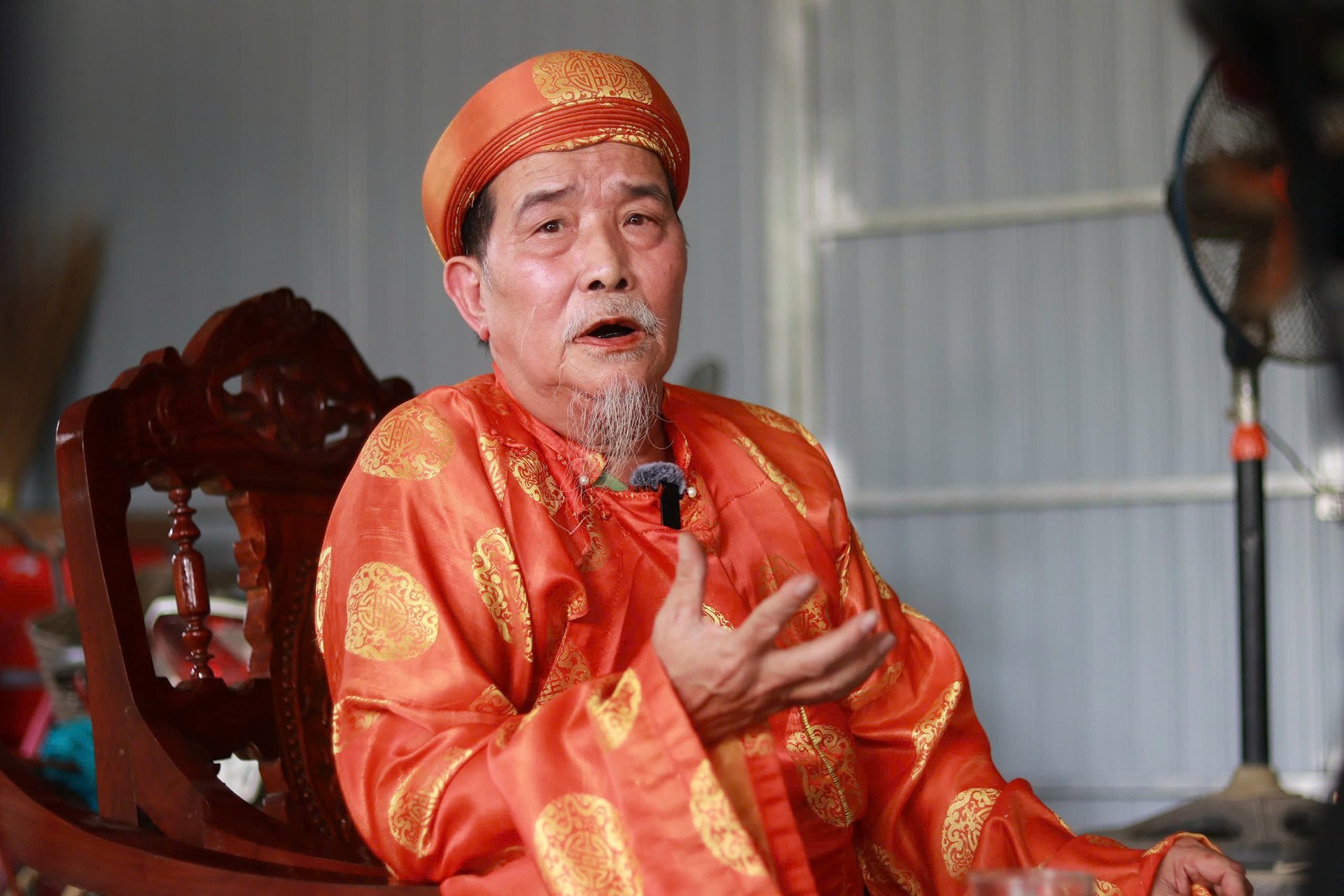
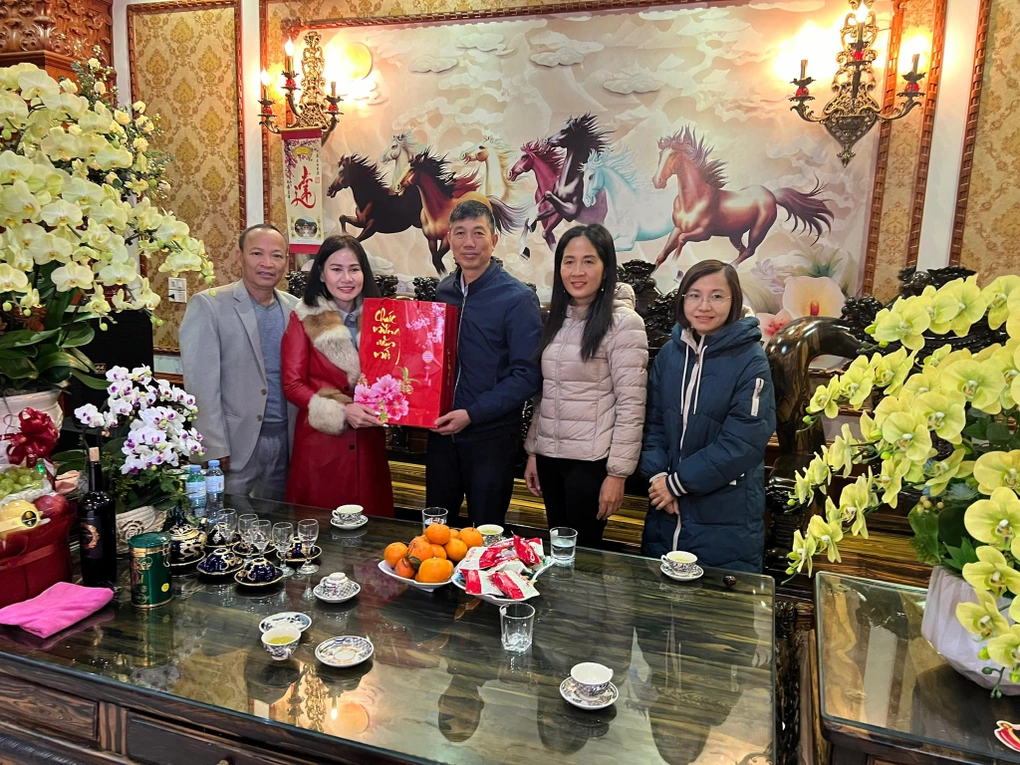





Comment (0)